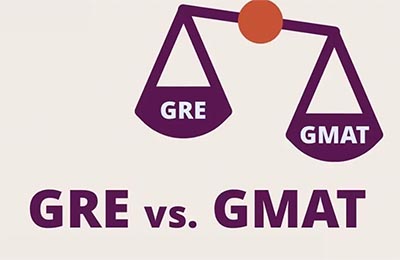首頁 >> GRE/GMAT學習資料>>正文
GRE寫作真題解析:所有學生上全國性統一課程
時間:2020-09-25
來源:朗思教育
作者:小顧老師
在GRE的Issue寫作中,很多學生會缺少破題思路。我們都知道Issue考察的是Critical Thinking(辨析性思考)的能力,和復雜論題的學術寫作能力。但是具體應該如何思考才能符合Critical Thinking的思維模式呢?
這里我來講解下一道題庫中較為簡單的Issue題:
A nation should require all of its students to study the same national curriculum until they enter college.
國家應該要求所有學生在上大學之前上全國性統一課程。
Write a response in which you discuss your views on the policy and explain your reasoning for the position you take. In developing and supporting your position, you should consider the possible consequences of implementing the policy and explain how these consequences shape your position.
很多學生會用托福寫作的方式來寫這道題。比如說看到絕對詞“All of its students” 會選擇相對好寫的反對立場,然后開始找論點。托福寫作老師一般會給出一些萬能理由:經濟,效率,效果,健康,情感等。
于是便有了以下的題綱:總觀點:我不同意所有學生都上統一課程。
1.(情感角度)大家都學統一的課程會感覺無聊。
2.(效果)不能因材施教,導致學得不好。
3.(金錢)誠然,開發和實施同一套課程會幫國家節約資金。
這樣的題綱能拿多少分呢?不會超過3分,因為不符合ETS在官方陳述中給出的寫作標準:對Issue命題復雜性的思考。我們不應該用“先確定立場后找現成理由”的方式寫作,這樣會導致內容非常片面。
我們可以先嘗試問自己一些問題,
例如:
1.“全國性統一課程”的定義是什么?
2.這道題的陳述中有沒有一些假設?
3.這陳述是否成立是不是應該考慮到不同情況?
4.這樣做會有什么樣的結果?
5.有沒有其他可以采用的方案?
我們先回答以上問題:
1.“全國統一課程”的定義:由中央政府制定并在政府資助的學校中實施的一套教育標準
2.假設:統一的課程可以在全國范圍內執行
3.切分到不同情況:多元性國家不好操作,文化和和管理統一的小國家可以操作
4.結果:大家有一樣的價值觀,利于國家統一;無論是富養還是窮養的孩子都能受到教育,差距減小;但是忽略了學生情況的差異
5.重新設計方案:在大范圍內執行統一課程,在部分特殊地區(例如少數民族)執行本土方案。
于是我們有了以下論點:
1. 統一課程可以讓孩子們學到基本的價值觀和統一的理念,進而保障社會安定和統一。A national curriculum will ensure all the children are taught common core values and develop the same national identity upon which the society is built.
2. 課程的制定是由政府當屆領導人決定的,可能只體現了他代表的社會團體利益而忽略了其他團體的利益。The regulator who is the decision-maker of the curriculum may only reflect the interests and notions of the communities he represents, while ignore those of others.
3. 強制性的全國課程會讓家長在孩子面前失去權威性,使得家長不能很好監管小孩避免潛在危險。Imposing a uniform curriculum will undermine the authority of parents so the parents might loose control of monitoring their kids, unable to protect them from any potential danger.
4. 孩子會有不同的教育需求和個人情況,統一課程會忽略學生之間的差異性。The implementation of a national curriculum will fail to recognize students’ individual needs because there are variations between individuals.
































